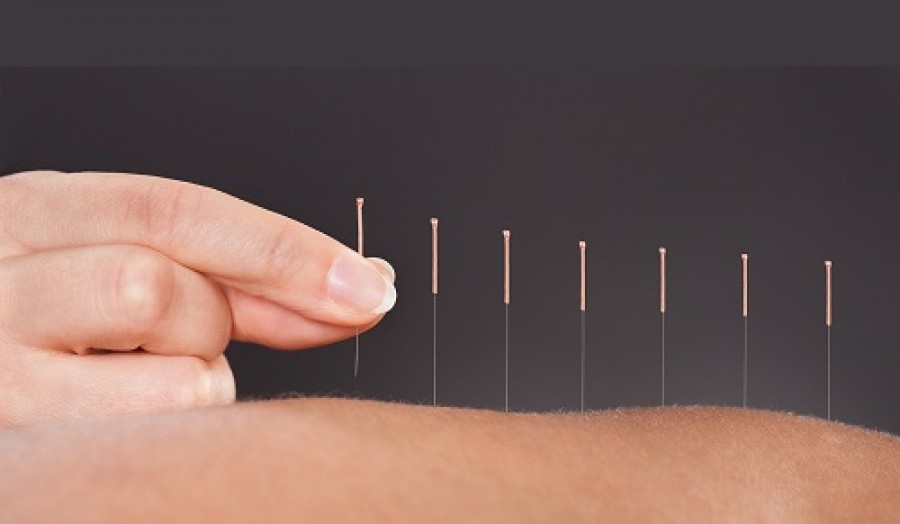What You Need to Know About Acupuncture for Fertility

Despite the full range of fertility tests and treatments available, it still remains a fact that for 1 in 5 couples doctors are unable to find a cause for their infertility. This doesn’t mean that they aren’t able to successfully conceive through IVF or pursue a baby through surrogacy, but it can be very frustrating and stressful.
More and more these days many couples are looking to alternative therapies, as well as medical treatments to assist them with their infertility problems.
One of the most popular alternative therapies for fertility is acupuncture. It has been shown to have positive effects on both male and female fertility and more clinics are starting to offer this as a viable treatment option.
But what exactly does it involve and how does it help fertility? Below we take a closer look at the answers to these questions:
What does acupuncture for fertility involve?
Acupuncture is an ancient, traditional Chinese treatment, used to aid many different health problems. You’re probably already aware of acupuncture being used to treat other conditions, and the basic method for what it involves.
Much of traditional Chinese medicine is based on the theory of energy pathways that flow through our bodies. These are called meridians.
Essentially, acupuncture involves the insertion of extremely thin, sterile needles into different parts of the body – specifically different acupuncture points that are linked with internal workings of the body. The acupuncture points reside on meridians – or pathways – that are both interior and exterior. When acupuncture needles are inserted into these points, they can help to regulate the way the body works.
When these meridians become blocked, acupuncture helps to unblock them and improve the flow of energy through our body. In acupuncture for fertility, the needled points that are used will vary from patient to patient, depending on their previous fertility tests and possible causes for infertility.
Common acupuncture points that are used to treat infertility are located on the abdomen, lower back, and legs. For hormonal stimulation, acupuncture points are also used around the head, neck and arms.
Although it might sound painful, it is actually a very painless treatment and comes with minimal risks to both men and women in treating fertility.
How does it work?
It might sound like a very new concept, but acupuncture has been used for centuries to treat infertility.
Although there isn’t an exact explanation for how it works, many studies have shown that the treatment does have an effectiveness in treating different conditions – including fertility.
Two current theories are:
- The needles trigger a release of specific hormones, which change the way the body responds to different conditions. Releasing the right hormones helps the body to heal itself.
- Acupuncture is a very calming process and has been linked heavily to helping to reduce stress. Stress is a major cause for infertility, so this may help to explain some of why it has been so effective in infertility treatment.
What is acupuncture used for in fertility?
Acupuncture is used as a stand alone treatment but more commonly it is used in conjunction with other treatments to help aid fertility. These include:
1. Acupuncture and IVF
Studies have found that acupuncture used in conjunction with IVF treatment helped to increase the embryo transfer by an impressive 50%. Acupuncture is used prior to the insemination process to help increase blood circulation and hormone balance.
After the procedure, a specialist acupuncturist will use different acupuncture points to encourage the embryo to connect with the uterus successfully.
2. Acupuncture and sperm production
Around a third of infertility problems in couples is caused by sperm production – both the quality and quantity. Studies have found that regular acupuncture sessions help to improve sperm production.
In this case, acupuncture is again used to help address hormone imbalances and blood circulation – both known to have a positive effect on sperm production.
3. Acupuncture and endocrine function
Some studies have found that women with endocrine dysfunctionality related infertility may actually have better success with acupuncture than more scientific medical treatments. Other research has shown that women who had acupuncture alongside other medical treatments for infertility, were far more successful in falling pregnant.
Again, many doctors think this is related to increasing blood flow, balancing hormones and reducing stress. Either way – the results speak for themselves!
Is it suitable for both men and women undergoing fertility treatment?
As described above, acupuncture can be beneficial for both men and women for a variety of different fertility issues.
After initial tests, your doctor can let you know where your main causes might be and you and your partner can decide together whether this is a form of treatment that would be beneficial for you.
Can I get acupuncture for fertility in Australia?
The good news is that with the increased awareness, and medical research backing up how successful acupuncture can be, it is becoming more available across Australia.
Many clinics offer acupuncture as a form of treatment to fit alongside their other offerings, and some even have an in-house acupuncturist to support their delivery of this treatment.
Is acupuncture for fertility for you?
Although the success of acupuncture is now becoming well documented, it’s also acknowledged that it will now work for all causes of infertility. If you have physical reasons behind your infertility – such as blocked fallopian tubes or other physical abnormalities, then acupuncture will not help this.
It can still be a very beneficial treatment for the stress brought on through exploring and testing for infertility.
As with all treatments, always consult with your fertility doctor before undergoing any procedures so they can make sure that it will be beneficial for you and work alongside any other treatment plans.
Most Viewed
-
5 Common Methods of Contraception
Last updated On by Percy Oad -
How to Cope with Male Infertility
Last updated On by Alina -
What is the Difference Between Primary and Secondary Infertility?
Last updated On by Madison -
How to start a child-free life after infertility
Last updated On by Jacinta







